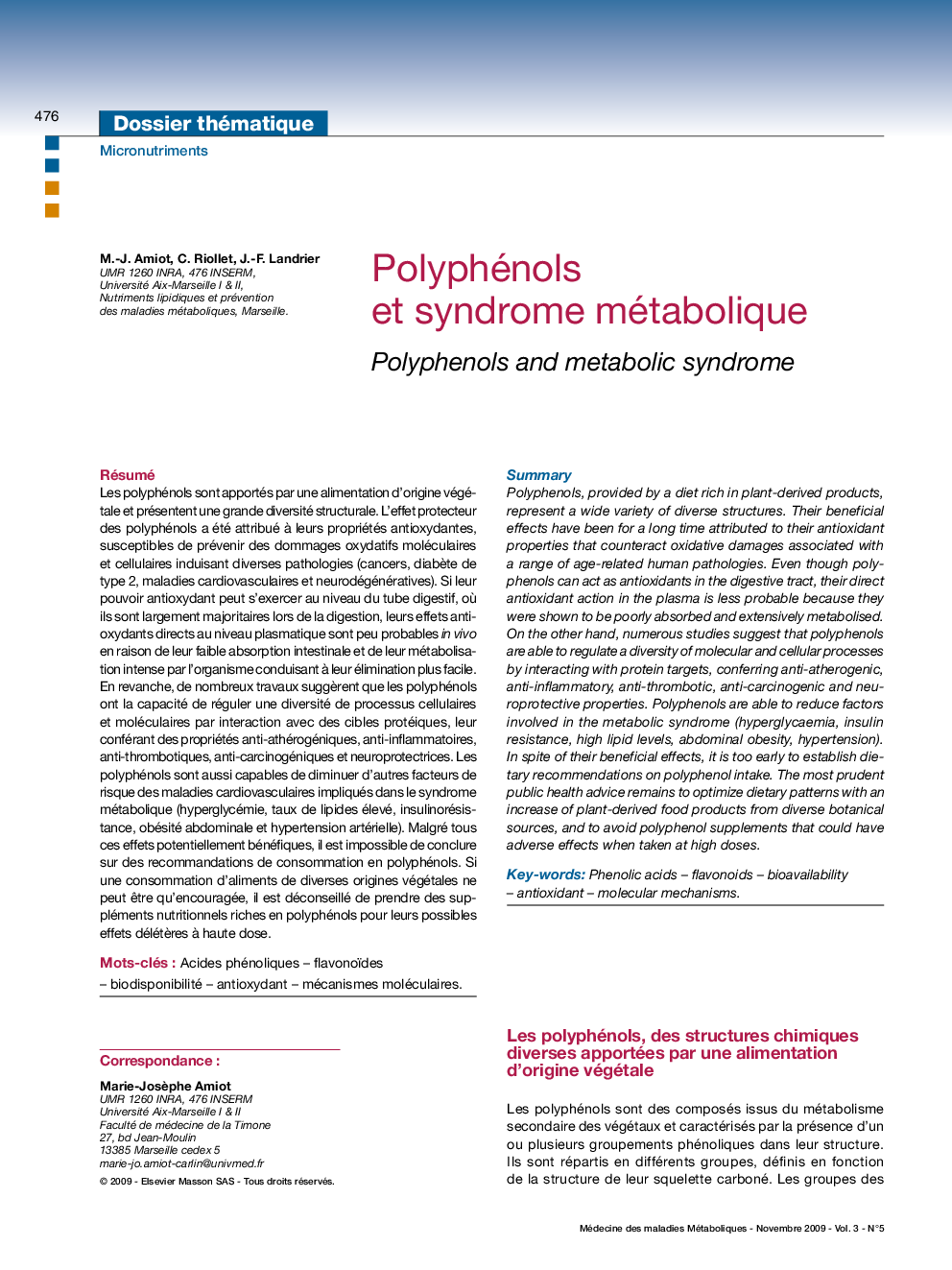| Article ID | Journal | Published Year | Pages | File Type |
|---|---|---|---|---|
| 3275166 | Médecine des Maladies Métaboliques | 2009 | 7 Pages |
Abstract
Polyphenols, provided by a diet rich in plant-derived products, represent a wide variety of diverse structures. Their beneficial effects have been for a long time attributed to their antioxidant properties that counteract oxidative damages associated with a range of age-related human pathologies. Even though polyphenols can act as antioxidants in the digestive tract, their direct antioxidant action in the plasma is less probable because they were shown to be poorly absorbed and extensively metabolised. On the other hand, numerous studies suggest that polyphenols are able to regulate a diversity of molecular and cellular processes by interacting with protein targets, conferring anti-atherogenic, anti-inflammatory, anti-thrombotic, anti-carcinogenic and neuroprotective properties. Polyphenols are able to reduce factors involved in the metabolic syndrome (hyperglycaemia, insulin resistance, high lipid levels, abdominal obesity, hypertension). In spite of their beneficial effects, it is too early to establish dietary recommendations on polyphenol intake. The most prudent public health advice remains to optimize dietary patterns with an increase of plant-derived food products from diverse botanical sources, and to avoid polyphenol supplements that could have adverse effects when taken at high doses.
Keywords
Related Topics
Health Sciences
Medicine and Dentistry
Endocrinology, Diabetes and Metabolism
Authors
M.-J. Amiot, C. Riollet, J.-F. Landrier,
